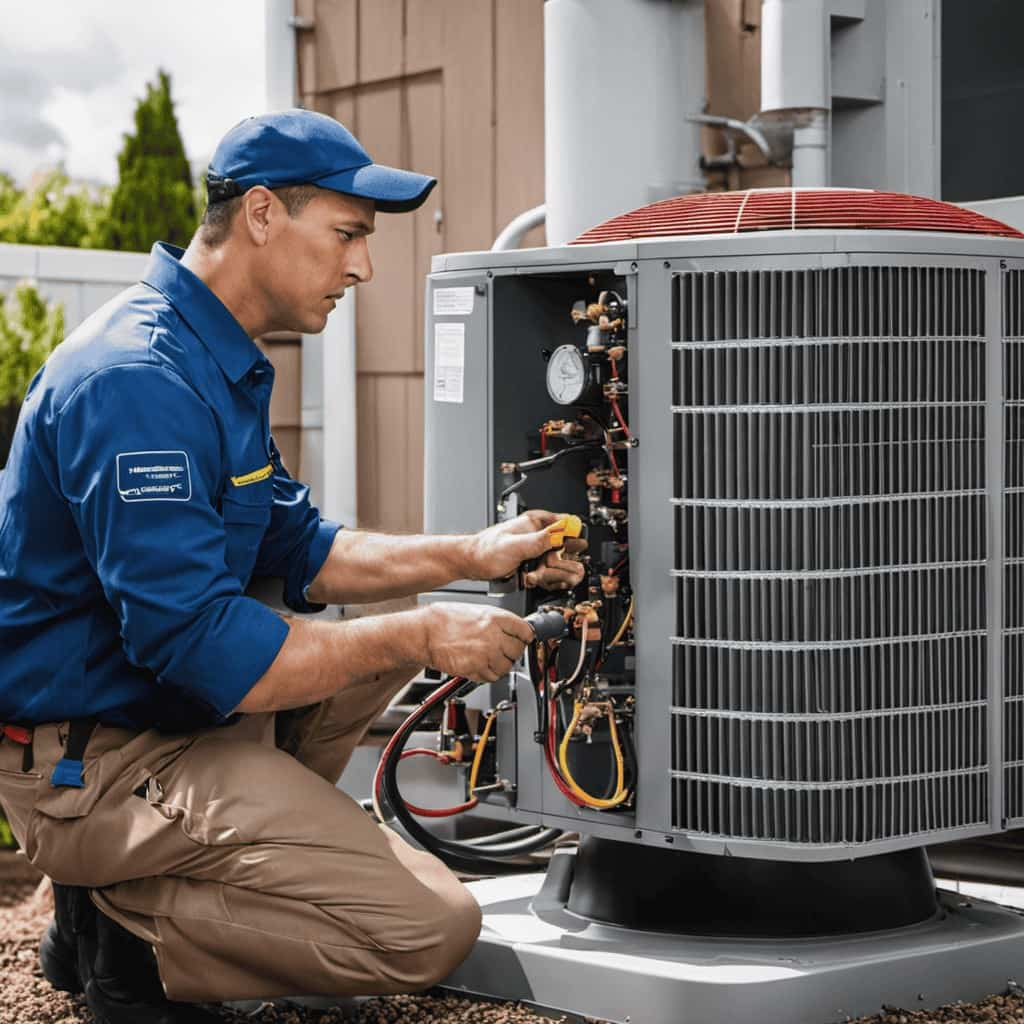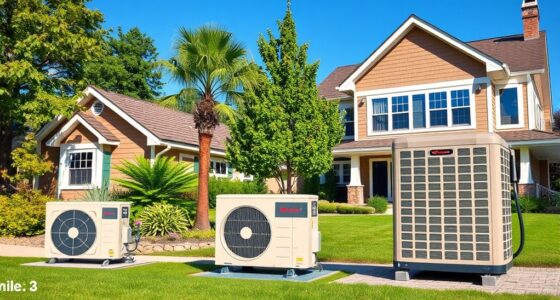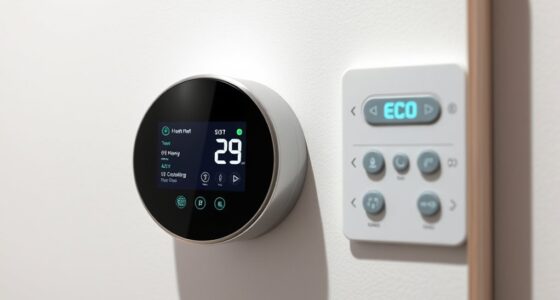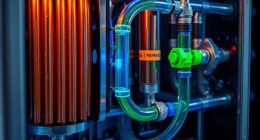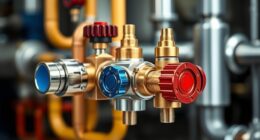Are you looking to optimize energy efficiency while maintaining comfort in your home? Your ultimate guide to efficient heat pumps is just a click away!
In this article, we’ll explore the basics of heat pump technology, energy efficiency ratings, and tips for optimizing performance. Plus, we’ll delve into advanced strategies for conserving energy with your heat pump.
Get ready to unlock energy conservation and save money on your energy bills. Let’s dive in!
Key Takeaways
- Heat pumps can provide both heating and cooling in one unit, making them versatile and efficient systems.
- Energy efficiency ratings, such as the Coefficient of Performance (COP), can help assess the performance of heat pumps.
- Regular maintenance and troubleshooting can optimize heat pump performance and reduce energy consumption.
- Advanced energy conservation strategies, such as variable speed technology and geothermal heat pumps, can further enhance energy efficiency.
The Basics of Heat Pump Technology
Let’s dive into the basics of heat pump technology.
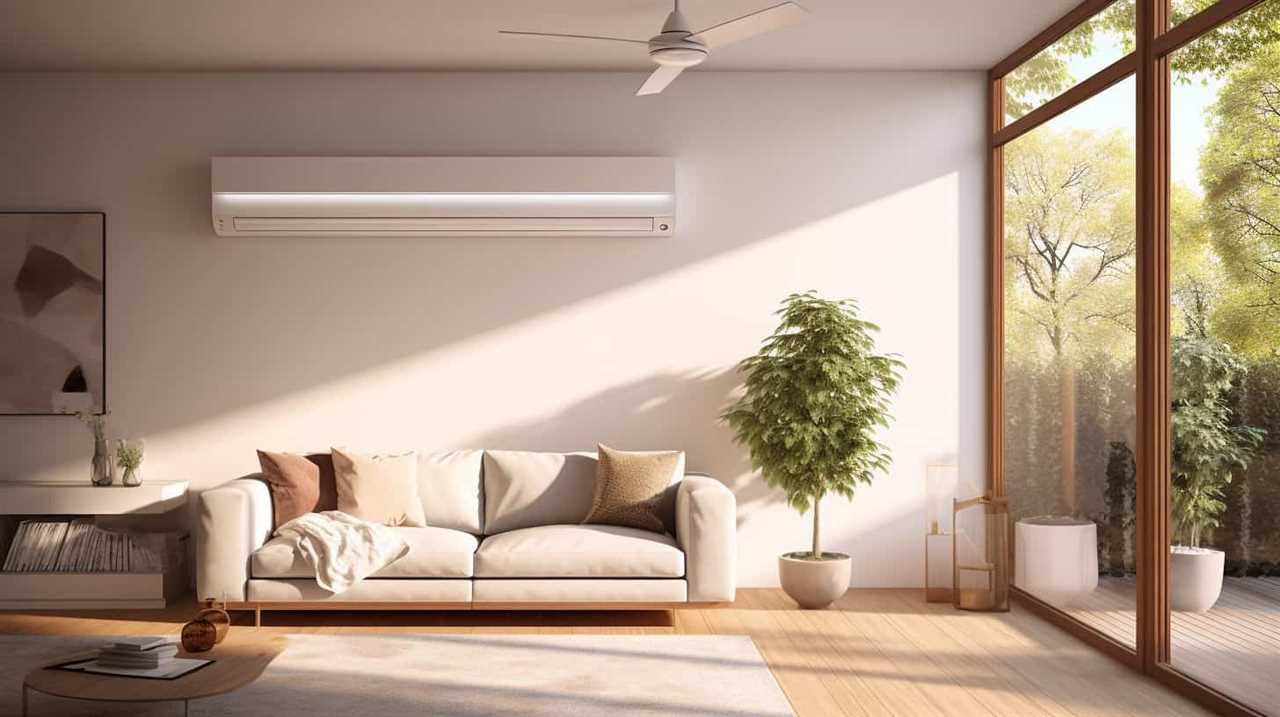
Heat pumps are highly efficient HVAC systems that can both heat and cool your home. They work by transferring heat from one place to another, rather than generating heat themselves.
Heat pump installation involves placing an outdoor unit, which extracts heat from the air or ground, and an indoor unit, which distributes the heat throughout your home.
One of the main benefits of heat pumps is their energy efficiency. They can provide up to four times the amount of energy they consume, resulting in significant cost savings on your utility bills.
Additionally, heat pumps are environmentally friendly, as they produce no emissions and reduce the need for fossil fuels.

Understanding Energy Efficiency Ratings
We should familiarize ourselves with energy efficiency ratings to better understand the performance of heat pumps. Energy efficiency standards are used to assess the energy efficiency of appliances, including heat pumps. These standards provide a standardized way to compare the performance of different models. They’re usually expressed as a ratio of the heat output to the energy input, known as the Coefficient of Performance (COP). Higher COP values indicate greater energy efficiency.
Understanding these ratings can help us choose the most energy efficient heat pumps, which offer several benefits. Energy efficient heat pumps consume less energy, resulting in lower utility bills. They also reduce greenhouse gas emissions, contributing to a cleaner environment. Additionally, energy efficient heat pumps provide improved comfort and durability, making them a smart investment for homeowners.
Optimizing Heat Pump Performance for Energy Savings
To achieve energy savings, it is important to optimize the performance of our heat pump. By maximizing heat pump efficiency, we can reduce energy consumption and lower our utility bills. One way to optimize performance is through regular heat pump troubleshooting. This involves checking for any issues such as refrigerant leaks, dirty filters, or faulty thermostats. Addressing these problems promptly can help improve the overall efficiency of the heat pump. Additionally, proper maintenance and cleaning of the heat pump system is crucial. This includes cleaning the outdoor unit, ensuring proper airflow, and lubricating moving parts. By following these steps and implementing routine maintenance, we can ensure that our heat pump operates at its highest efficiency, saving both energy and money.
| Heat Pump Troubleshooting | Maximizing Heat Pump Efficiency |
|---|---|
| Check for refrigerant leaks | Regular maintenance |
| Clean or replace dirty filters | Ensure proper airflow |
| Test and calibrate thermostat | Lubricate moving parts |
| Address any electrical issues | Monitor performance |
Energy-Saving Tips for Heat Pump Maintenance
To maximize energy efficiency and prolong the lifespan of our heat pump, it’s essential to implement regular maintenance and follow energy-saving tips.

Heat pump troubleshooting can help identify common heat pump problems and resolve them promptly.
One important tip is to clean or replace the air filters regularly to ensure proper airflow and prevent strain on the system.
Additionally, keeping the outdoor unit clear of debris and vegetation will optimize heat transfer and prevent airflow obstruction.
Checking and cleaning the evaporator and condenser coils will also improve the heat pump’s efficiency.
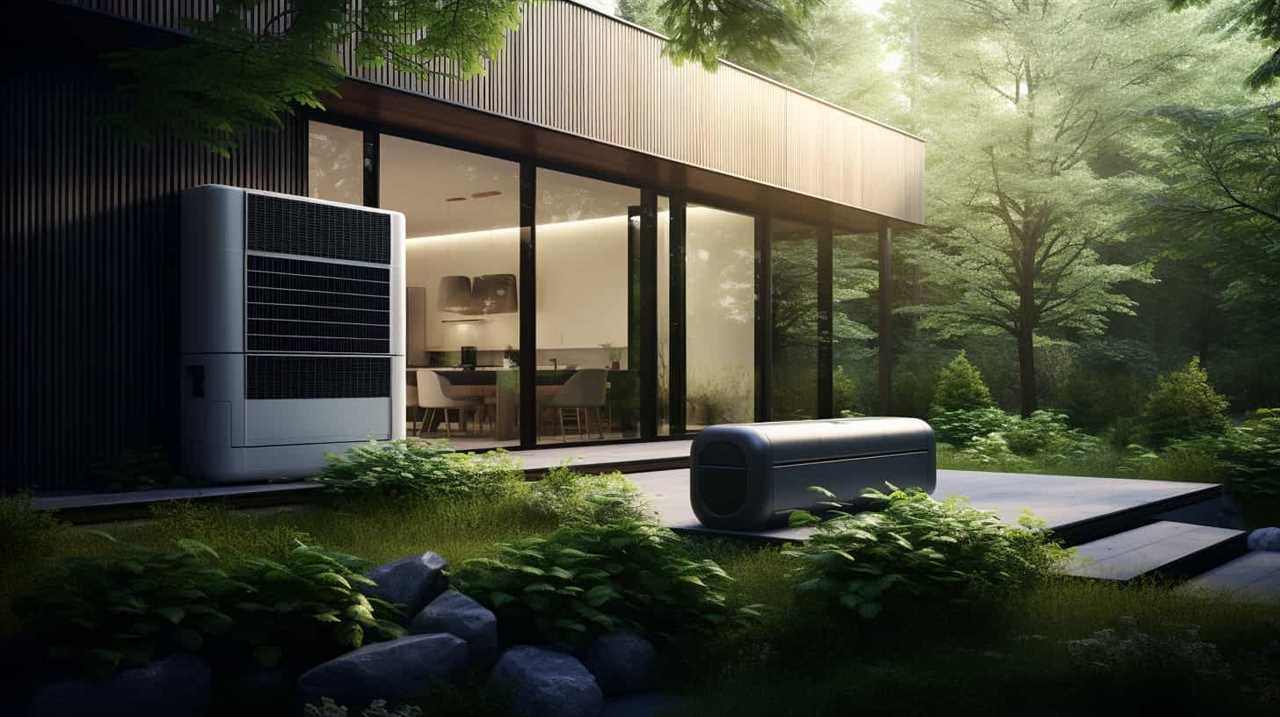
Regularly inspecting and tightening electrical connections, lubricating moving parts, and checking refrigerant levels are essential maintenance tasks that can prevent costly breakdowns and ensure optimal heat pump performance.
Exploring Advanced Energy Conservation Strategies for Heat Pumps
Occasionally, but, there are advanced energy conservation strategies that can be explored to further enhance the efficiency of our heat pumps. These strategies leverage advanced heat pump technology and heat pump energy management techniques to optimize energy consumption and reduce environmental impact.
Here are four advanced energy conservation strategies for heat pumps:
-
Variable Speed Technology: Utilizing variable speed compressors and fans allows the heat pump to adjust its output according to the heating or cooling demand. This results in more precise temperature control and reduced energy consumption.
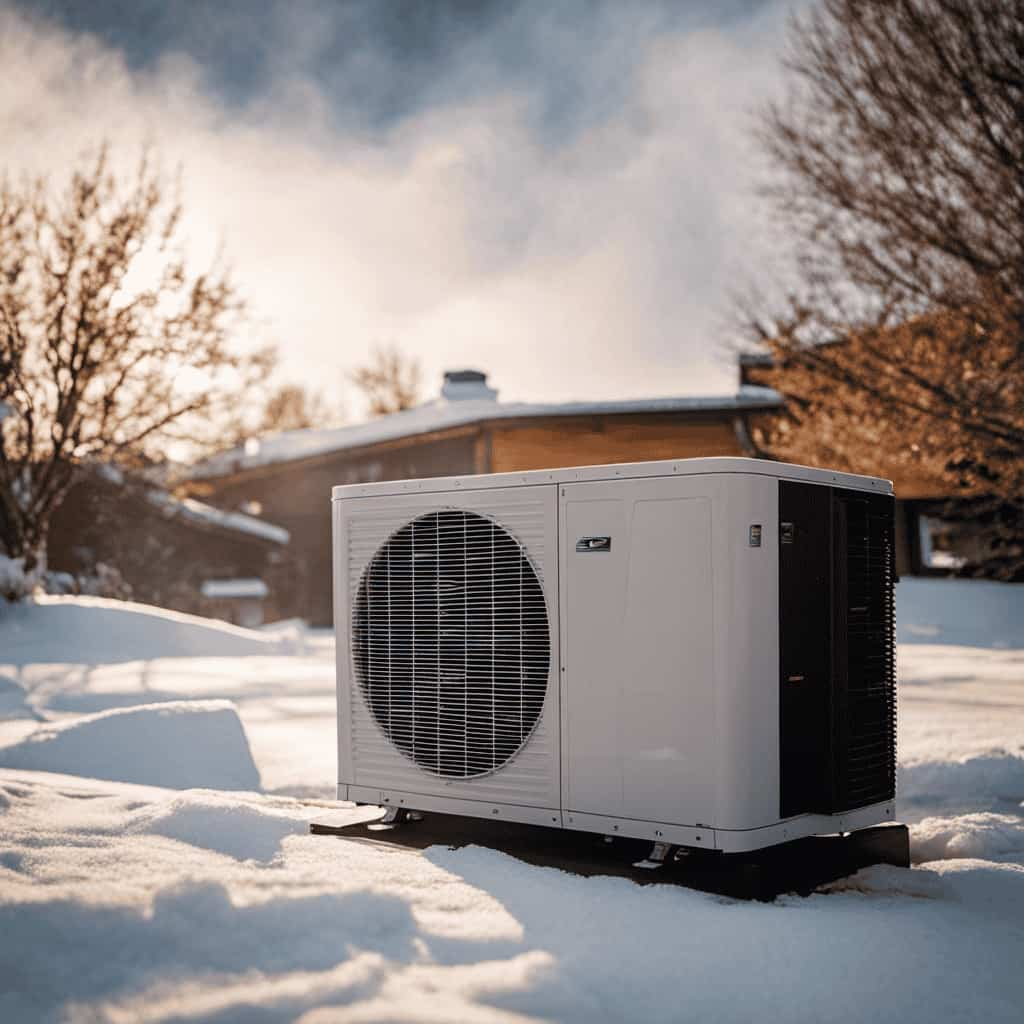
-
Geothermal Heat Pumps: By harnessing the Earth’s natural heat, geothermal heat pumps can provide significant energy savings compared to traditional air-source heat pumps. They achieve this by exchanging heat with the ground, which has a more stable temperature throughout the year.
-
Smart Thermostats: Integrating smart thermostats with heat pump systems enables advanced scheduling, learning algorithms, and remote control capabilities. These features optimize energy usage by adjusting temperature settings based on occupancy patterns and weather conditions.
-
Heat Recovery Systems: Heat recovery systems capture waste heat from various sources, such as ventilation air or hot water, and redirect it to other areas where it can be utilized. This improves overall energy efficiency and reduces the need for additional heating or cooling.
Frequently Asked Questions
Can a Heat Pump Be Used in Both Heating and Cooling Modes?
Yes, a heat pump can be used in both heating and cooling modes. It is an efficient system that offers numerous benefits for homes, such as energy conservation and cost savings.
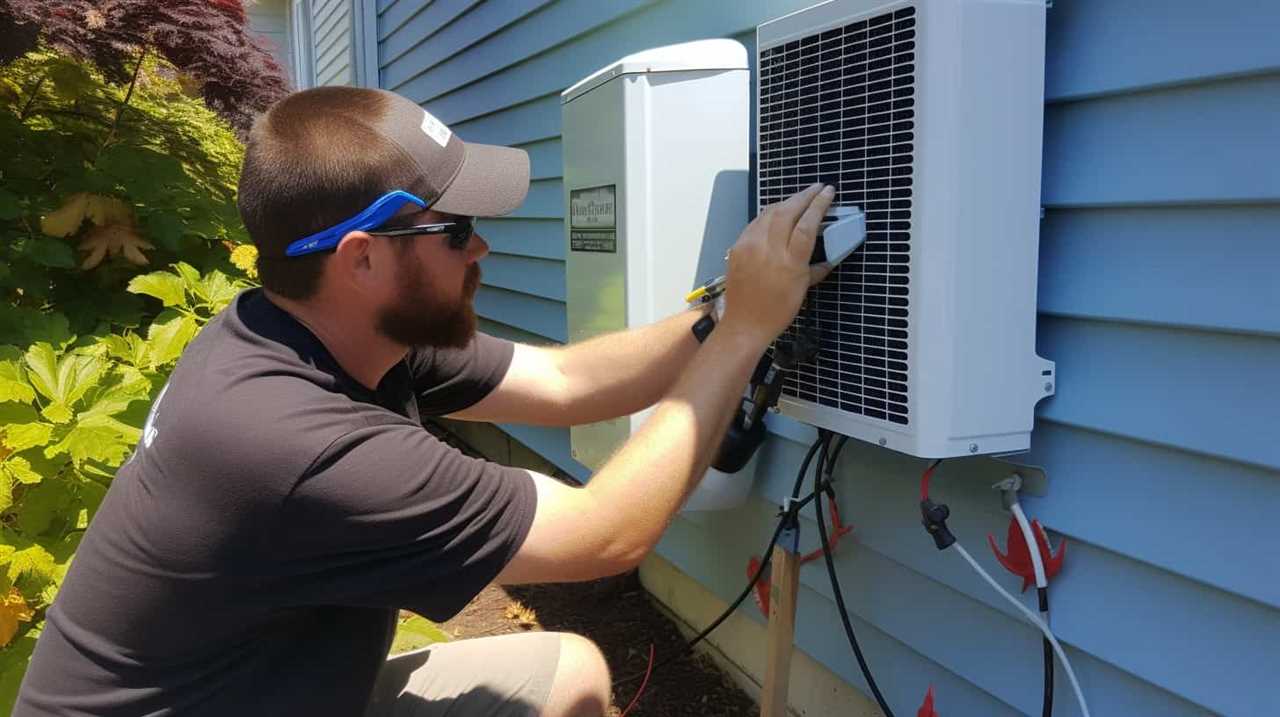
What Is the Average Lifespan of a Heat Pump?
The average lifespan of a heat pump varies depending on maintenance. Regular check-ups, filter replacements, and proper use can extend its life. Remember, "an ounce of prevention is worth a pound of cure."
Are Heat Pumps Noisy When They Are Running?
Heat pumps can be noisy when running, but noise reduction techniques can help minimize the sound. Pros of using heat pumps in residential areas include energy efficiency and lower operating costs, while cons may include higher upfront costs and occasional noise.
Can a Heat Pump Be Used in Extremely Cold Climates?
Yes, a heat pump can be used in extremely cold climates. While the efficiency of a heat pump may decrease in colder temperatures, it is still a cost-effective option for heating, especially when compared to other heating systems.
How Often Should the Air Filters in a Heat Pump Be Cleaned or Replaced?
We should regularly clean or replace the air filters in a heat pump to maintain its efficiency. Cleaning frequency depends on usage and environmental factors, while replacement period typically ranges from 3 to 6 months.
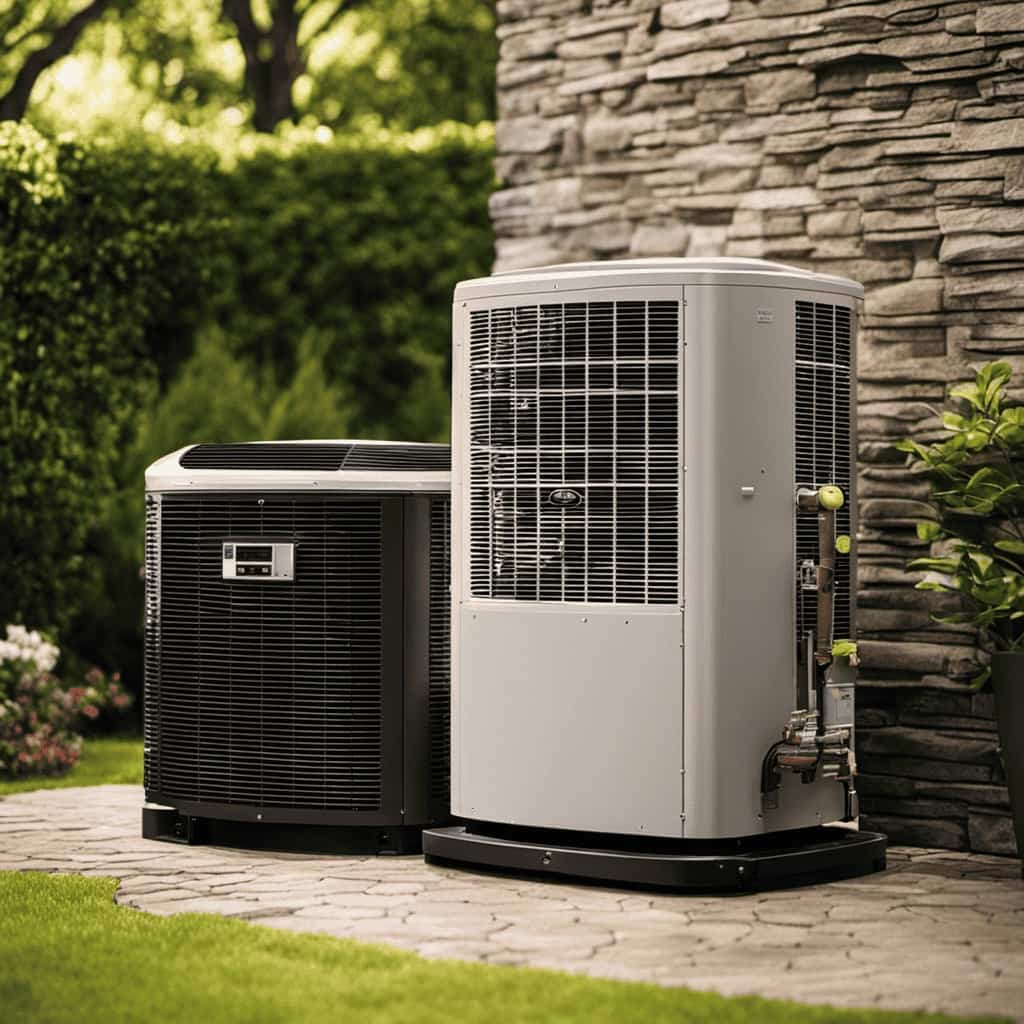
Conclusion
In conclusion, heat pumps offer a powerful and efficient solution for heating and cooling our homes. By understanding the basics of heat pump technology and energy efficiency ratings, we can optimize their performance and unlock significant energy savings.
Proper maintenance and exploring advanced energy conservation strategies further enhance their efficiency. Like a well-tuned symphony, heat pumps harmonize with our desire for comfort while minimizing our impact on the environment.
Let’s embrace this technology and pave the way towards a more sustainable future.

